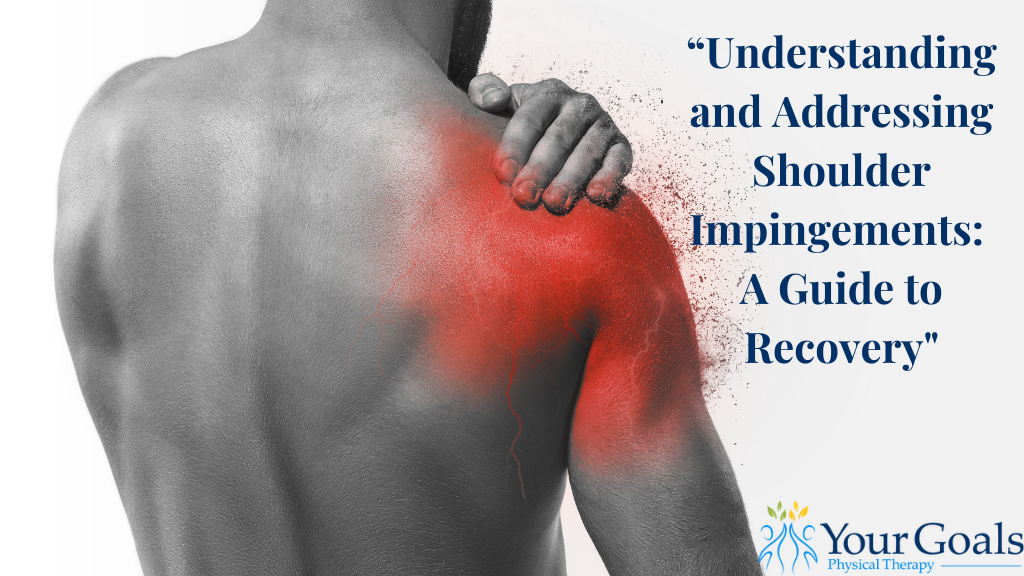
Hi Dr. Molly,
I have a question about my shoulder. I lift weights a few times a week. Recently, I haven’t been able to lift my right shoulder as high as my left shoulder. I wouldn’t say it hurts, but it doesn’t feel normal. Google tells me I have a shoulder impingement. Will this heal on its own? I don’t remember doing anything to hurt my shoulder; I just don’t want it to get worse.”
I recently received this question from one of my patients, and I thought it was a topic worth delving into in more detail. It’s not uncommon for people to approach me with questions about various physical issues they’re experiencing, seeking clarity and guidance on the best way forward. Patty’s query, in particular, struck a chord because it’s a concern that many individuals who engage in physical activities often share.
So, let’s explore Patty’s question about shoulder impingements, dissect the possibilities, and gain a deeper understanding of how to approach such situations.
Dear Patty,
Thank you for reaching out with your concern about your shoulder. It’s great that you’re proactive in seeking advice to address this issue. Shoulder impingements are indeed a common problem among individuals who engage in activities like weightlifting. Let’s delve into your query and shed some light on what’s happening.
Firstly, I want to assure you that you’re not alone in experiencing this sensation. Many active people, like yourself, face similar issues. The discomfort you’re feeling could indeed be due to a shoulder impingement. In simple terms, this occurs when a tendon in your shoulder gets pinched as you raise your arm overhead.
It’s important to clarify that shoulder impingements don’t typically heal on their own in the way a minor cut might. This is because the root cause of the impingement often lies in the intricate mechanics of your shoulder joint and the way the muscles interact with it.
Here’s how it works: The arm bone is connected to various muscles that facilitate its movement in the shoulder joint. For smooth and pain-free motion, these muscles need to work in harmony and a specific sequence for each type of arm movement.
The good news is that our bodies are remarkably adaptable. If one muscle becomes weak or stretched, other forces can compensate to allow your arm to function. However, this adaptation can lead to imbalances and uneven stress on the joint over time, which is where problems like impingements and even potential tears in the rotator cuff can arise.
Your observation of limited movement and discomfort indicates that some muscles may be contributing more than others to your arm’s movement. While this may not naturally resolve, there’s certainly hope. Physical therapy is an effective solution for addressing shoulder impingements.
A skilled physical therapist can thoroughly assess the mechanics of your shoulder joint’s movement and its interaction with your body. This evaluation helps to pinpoint the underlying cause of the impingement. The beauty of physical therapy lies in its ability to tailor a personalized treatment plan to address your unique situation.
By correcting muscle imbalances and restoring proper movement patterns, physical therapy can guide you toward pain-free and unrestricted shoulder movement. The aim is not just to alleviate your current discomfort but also to prevent the problem from recurring.
Patty, your proactive approach to seeking advice is commendable. While shoulder impingements may not heal on their own, the right approach and guidance can lead to significant improvement. If you’re looking to regain pain-free movement and get back to your workouts without worry, I encourage you to consider physical therapy as your solution.
If you’d like to explore this path further or have more questions, feel free to send me a direct message. Your health and well-being are of utmost importance, and I’m here to support you on your journey to recovery.
Wishing you a healthy and pain-free shoulder movement ahead,
Dr. Molly
We Can Help By Listening To Your Story & Giving You More Information? Choose Which Option Works Best For You….
MEDICAL DISCLAIMER:
All information on this website is intended for instruction and informational purposes only. The authors are not responsible for any harm or injury that may result. Significant injury risk is possible if you do not follow due diligence and seek suitable professional advice about your injury. No guarantees of specific results are expressly made or implied on this website.